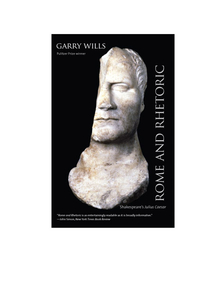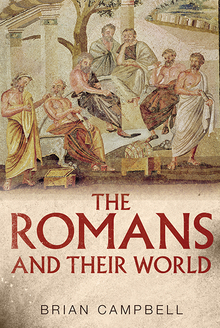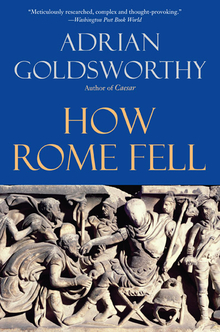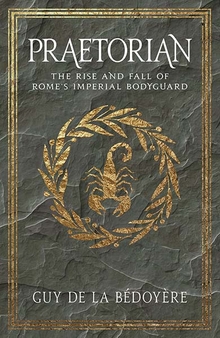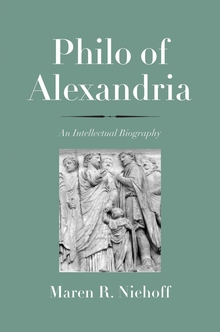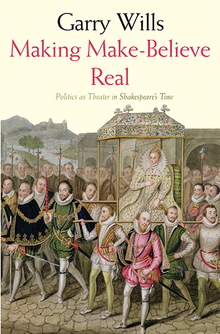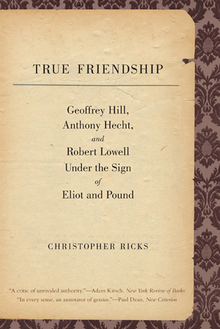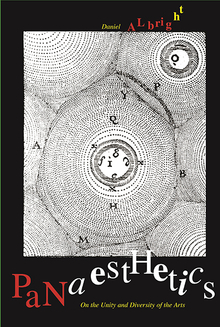Rome and Rhetoric
WARNING
You are viewing an older version of the Yalebooks website. Please visit out new website with more updated information and a better user experience: https://www.yalebooks.com
Shakespeare's Julius Caesar
Garry Wills
A many-faceted examination of how Shakespeare brought Rome alive for his readers through a masterful manipulation of ancient rhetoric
Renaissance plays and poetry in England were saturated with the formal rhetorical twists that Latin education made familiar to audiences and readers. Yet a formally educated man like Ben Jonson was unable to make these ornaments come to life in his two classical Roman plays. Garry Wills, focusing his attention on Julius Caesar, here demonstrates how Shakespeare so wonderfully made these ancient devices vivid, giving his characters their own personal styles of Roman speech.
In four chapters, devoted to four of the play’s main characters, Wills shows how Caesar, Brutus, Antony, and Cassius each has his own take on the rhetorical ornaments that Elizabethans learned in school. Shakespeare also makes Rome present and animate by casting his troupe of experienced players to make their strengths shine through the historical facts that Plutarch supplied him with. The result is that the Rome English-speaking people carry about in their minds is the Rome that Shakespeare created for them. And that is even true, Wills affirms, for today’s classical scholars with access to the original Roman sources.
Garry Wills is professor of history emeritus at Northwestern University. A winner of the Pulitzer Prize and the National Book Critics Circle Award, Wills is a frequent contributor to the New York Review of Books and other publications.
“Rome and Rhetoric is as entertainingly readable as it is broadly informative.”—John Simon, New York Times Book Review
Publication Date: January 29, 2013

